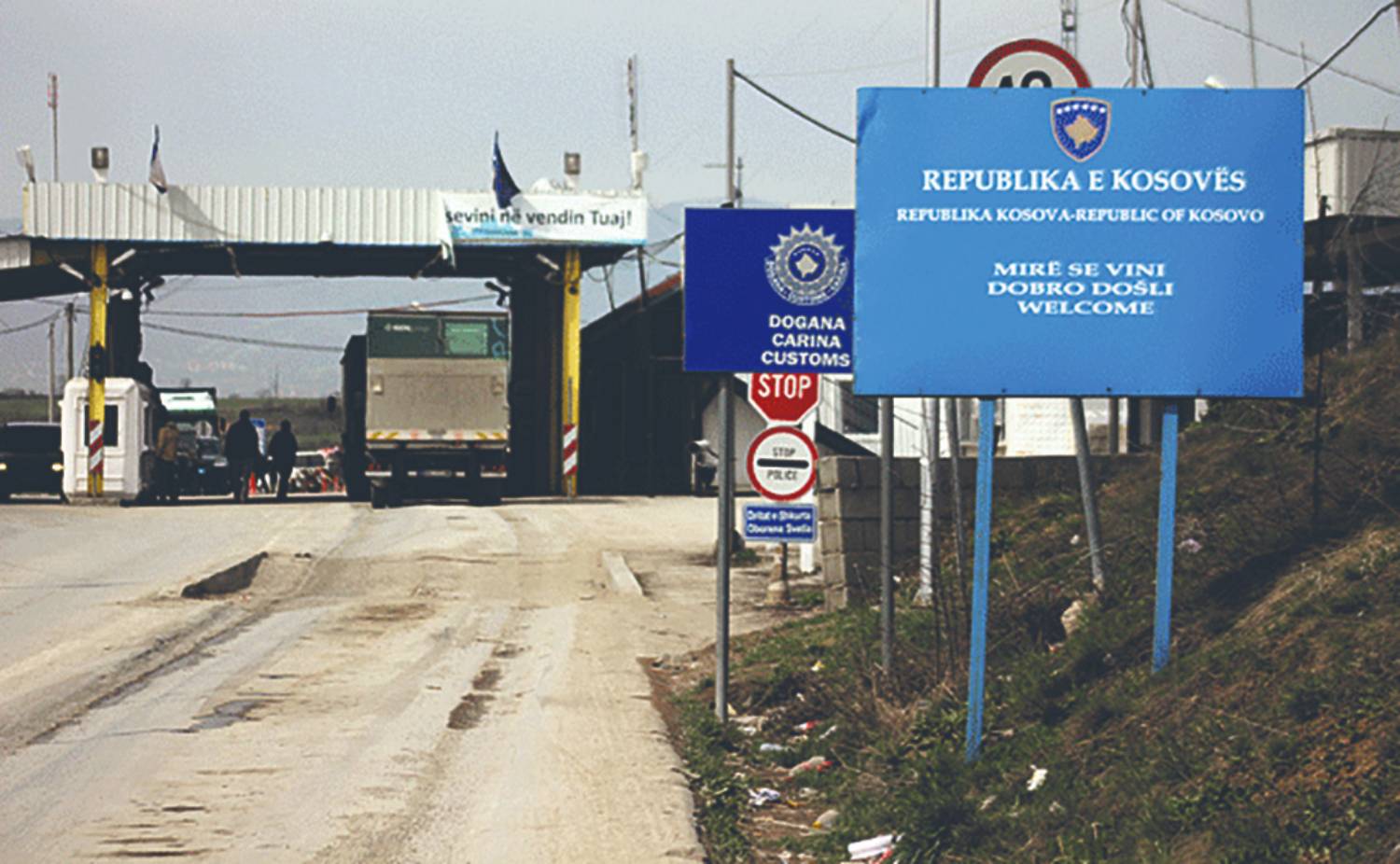The article was originally published in Novi magazin.
Photo: Printscreen/Merdare
Cooperation between the economies of Serbia and Kosovo should have been facilitated by (ongoing) processes of regional economic integration. Whether this will be the case is no longer certain, since Kurti and his associates oppose the “mini Schengen”; and Hoti’s outgoing administration warned of what Belgrade needed to accomplish before Pristina could fully support the idea.
One of the aspects of the relationship between Belgrade and Pristina, in which it has advanced the most, is economic. It is often overlooked – sometimes unjustly, and sometimes consciously, to leave room for business people to work. Economic cooperation is important. It will not, of course, resolve open political issues (which is the job of political leaders); but some new horizons (communications) can be opened and tensions reduced. It gained special importance at a time when the winner of the elections in Kosovo, Albin Kurti, points out that (political) dialogue is not among the priorities and has the support of the majority of citizens. The technical one remains, however; and within it, economic and especially cooperation between chambers of commerce has occupied an important place from the beginning. At the same time, the issue of perspectives of cooperation in the context of regional economic integration is open; whether it is the “mini Schengen” process or the construction of a regional economic area (REA).
Special importance for understanding the cooperation and exchange of economies between Serbia and Kosovo is the research of the Serbian Chamber of Commerce, which was led by the Forum for Ethnic Relations in 2018 and 2019, as part of a project to support chamber cooperation supported by the European Union (EU). The Forum’s researchers spoke with company representatives directly, as well as at meetings held in regional chambers of commerce. These were companies of different sizes – 70 of them (of which 40 in Serbia, 30 in Kosovo; and out of those 30, five are located in Serbian areas, and not only in the north). The authors of the research took care that those from Sandzak, Bujanovac and Presevo were also presented among the companies. It was common for all of them to perform on the markets of Serbia and Kosovo. Special emphasis was given to freight forwarders, who, due to the nature of their activities, are among the most active economic entities on both sides of the administrative line.
The companies, of course, are driven by interest, the possibility of earning money in the neighboring and close market, which they have known well for the past 20 years (and some even more; some are building success on brand recognition since the time of Yugoslavia). Serbia’s interest could not be clearer when taxes were introduced in November 2018 – Kosovo represents a market of half a billion euros a year.
On the other hand, consumers in Kosovo were the ones who paid the price of the introduction of the tax, with the price of products rising by 5.4% (study by the GAP institute). Intensifying cooperation in the future could contribute to the reduction of unemployment, which is (in the Western Balkans) record high and is around 30% of the working age population. Kosovo is in deficit when it trades with Serbia, but that is the reality in economic relations with, practically, everyone and it is a reflection of the structure (weakness) of the local economy.
The problems and obstacles are numerous. Let’s take the following examples. Since the start of the Energy Agreement, Serbia and Kosovo can no longer trade in electricity, because we do not recognize each other’s licenses. Therefore, the electricity network of Kosovo can no longer be transit if it trades with, for example, Albania. Then there are several problems that make life difficult for carriers: from the fact that Kosovo is not in the ADR system (transport of dangerous goods), and you must have a licensed driver and vehicle in order for such goods to be transported; then, that goods of phytosanitary origin cannot be transferred through Kosovo to Serbia; the fact that Bosnia and Herzegovina does not recognize Kosovo, which makes any trade between them very difficult; to (non) recognition of license plates. In all this, according to our interlocutor, “an ordinary businessman cannot cope” and that is why the role of chambers of commerce (Serbia and Kosovo) is of great importance – they are the ones who are looking for solutions.
The “technical dialogue” of chambers of commerce operates on an equal equal, and it is the economy that “dictates” topics – from determining the form of forms whose text is status-neutral, through standardization, to arbitration as a way of resolving disputes. In their work, the chambers include experts from various institutions. The EU has long recognized this and is helping their work; some of the key issues, such as the aforementioned phytosanitary certificate, have been agreed in Brussels.
After the taxes were abolished, in just a few months, the exchange returned to 70% of the previous one; the companies kept in touch, and regained the market relatively quickly and to a large extent. In the meantime, the desire to cooperate has developed not only through trade, and this “positive pressure” is somewhat more pronounced among companies registered in Serbia.
What do our companies sell in Kosovo? Most of them are still food products. When the taxes were introduced, producers from the surrounding area (primarily Croatia, but also Slovenia, ie North Macedonia) tried to compensate for the presence of local producers. We all remember, at that time there was even a law in force that obliged retailers in Kosovo to display flags (countries) of origin of products; so replacement products, often of lower quality, were quickly sought.
An interesting and insufficiently researched issue concerns the possibility of investing from Serbia in Kosovo, ie Kosovo in Serbia. At this point, it seems more realistic for a larger company from here – for example, in the same food industry – to try to open a production plant in Kosovo. Raspberries that are further exported are also procured in Kosovo; Štrpce is an example of an environment where a given business is very developed. The “Soul of Metohija” program, launched several years ago, can also serve as one of the ways of connecting. The chance is also in the expected change in consumer habits after the pandemic, where they will look to replace products coming from distant destinations with those from the region. As these are economic entities registered in Kosovo, it becomes part of the “value chain” of regional trade and exchange.
On the other hand, one of the main problems facing Kosovo’s economy is capacity: companies there cannot produce enough to appear “on the shelves” here. Another problem is that our market for some of their leading products is simply not open (pressure from domestic producers). Furthermore, while at least in principle it is not a problem for our company to appear on the market in Kosovo and participate in the tender, theirs cannot appear here, because we do not recognize the documents they attach. And businessmen are reacting to any relief of the regime, where we will recognize each other’s documents, and not restrict access.
Cooperation between the economies of Serbia and Kosovo should have been facilitated by (ongoing) processes of regional economic integration. It is no longer certain that this will be the case, since Kurti and his associates oppose the “mini Schengen”; and the outgoing Hoti administration warned what Belgrade needs to accomplish before Pristina fully supports the idea (On the other hand, it seems that Montenegro and BiH are now more willing to join than was the case last year). It is not, at last, the clearest what will now be the measure of interest and support of the United States. Last week, discussions about the further role of the newly opened U.S. International Development Finance Corporation (DFC) in Belgrade – which acted as the most concrete achievement of the “Washington Agreement” (in addition to the agreement on investment incentives), attracted significant attention. To remind, DFC was supposed to support some of the strategically important projects – highway, railway (intended primarily for freight transport), and guarantee funds for businessmen and farmers.
This leaves the second initiative, the common market of the region, which takes place with the active role of the Regional Cooperation Council and the EU itself. It is not a competition to “mini Schengen”, but for now, it seems acceptable to everyone. The themes of the “mini Schengen” – “four freedoms” “released” through regulations and standards, which have been harmonized – are present here in the form of a continuation of the action plan, which was adopted at the summit in Sofia in November 2020. There is a lack of workers, more offers in tenders, predictability that businessmen need so much. That is why it is necessary to “communicate” both processes to the end.
Author is the executive director of the Belgrade Fund for Political Excellence













